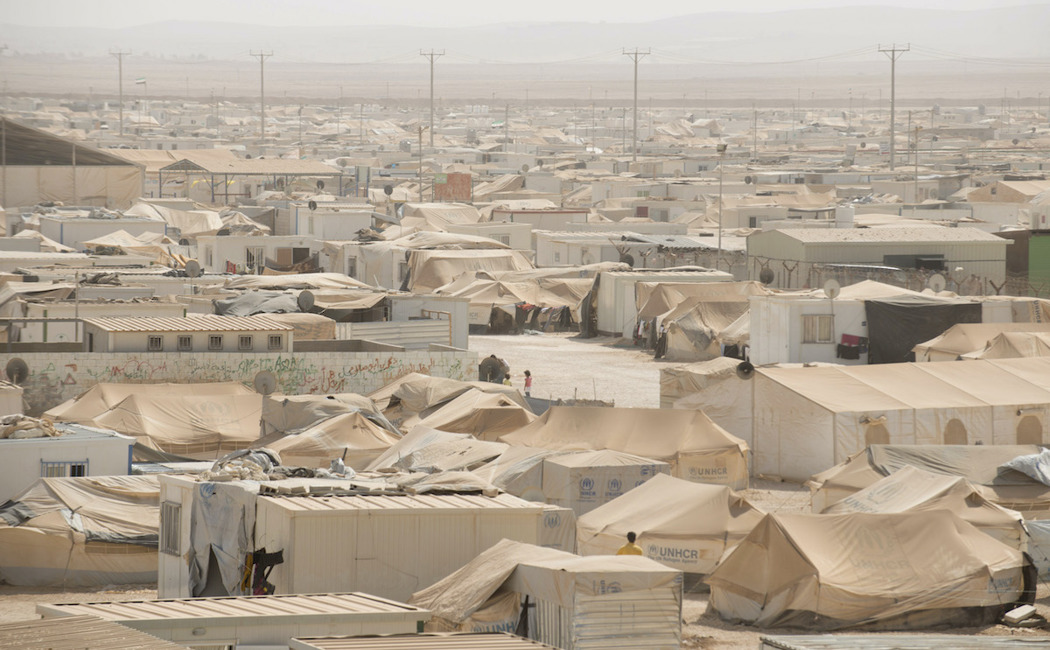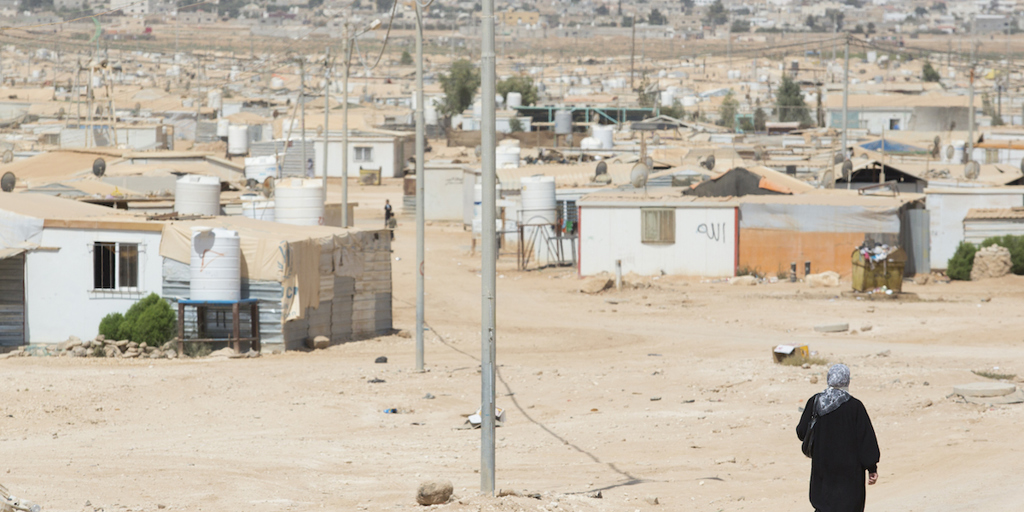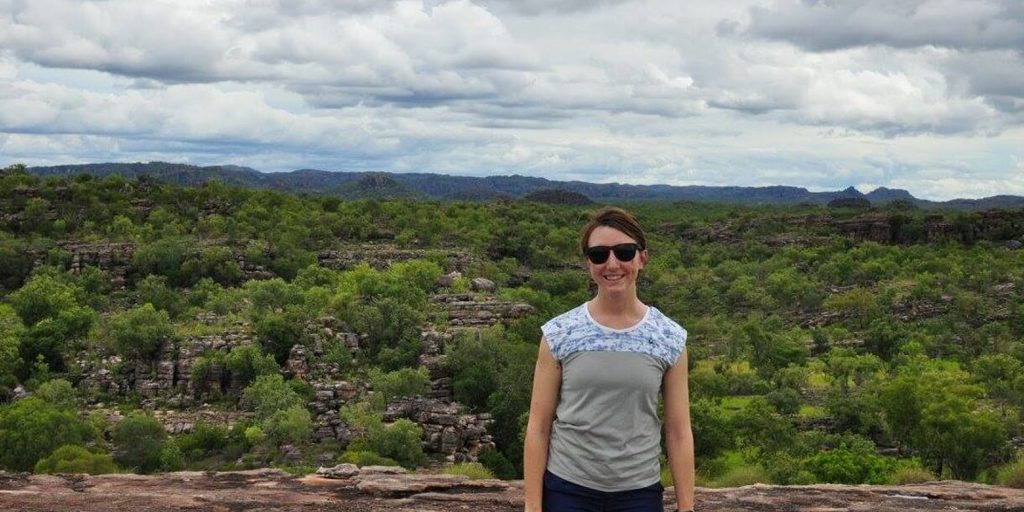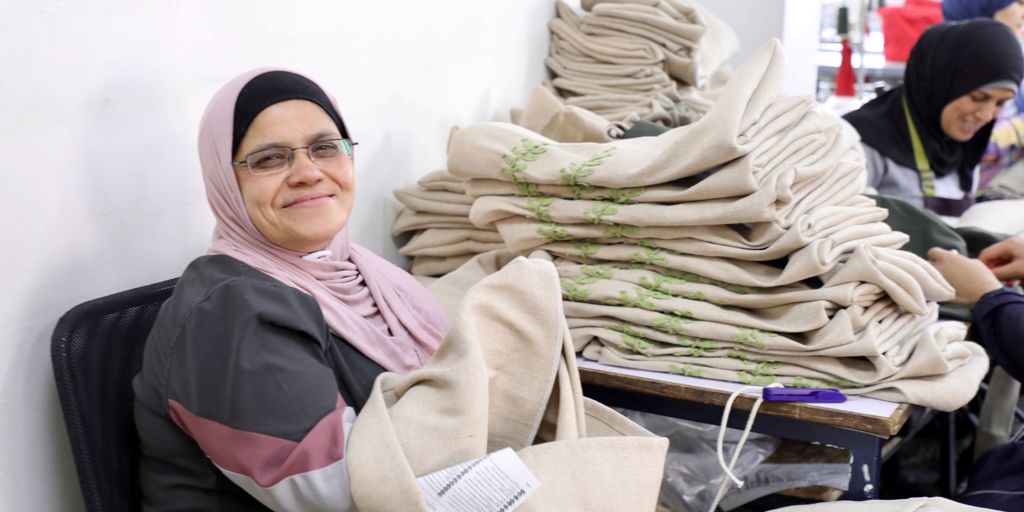Originally a journalist, Carolyn began her career in humanitarian aid in the 1980s and, in the decades since, she’s worked in countries as diverse as Saudi Arabia, Rwanda and the Democratic Republic of Congo.
During that time, she says that refugees’ aspirations have barely altered. “They just want a place where they can live, go to work safely, feed their kids and send them to school. I’ve heard that over and over again. It’s such a simple request.”
But although refugees’ hopes haven’t changed, Carolyn has witnessed a difference in some of the ways assistance is delivered. “We have seen in many areas, both in camps and urban areas, that the aid provided is not always what is needed, and often refugees will sell unwanted items they have been given, in order to obtain what they really need.”
Among Carolyn’s key responsibilities in Jordan are the programmes that deliver financial support directly to refugees, particularly in urban areas. These allow refugees to manage their own budget, enabling them to pay rent, buy groceries and cover other essential household expenses.
This is a cost-effective way to support them, says Carolyn, whose accent now flits between that of her native US and the other countries she’s lived in. “It saves on money like shipment and transportation [of supplies] and warehousing," she says. During the COVID-19 crisis, cash assistance has proved more effective than trying to move supplies through locked-down areas.
But it’s also empowering for refugees to have the opportunity to manage their own family budgets again.
“It removes the sense that we are the benefactors giving the grateful beneficiaries plastic buckets of food they don’t want,” says Carolyn. “We have to remember that refugees are not ‘a problem’. They are not ‘other’. They are people just like us with refugee status.”
In her years with the UNHCR, Carolyn has developed an abiding respect for refugees’ resourcefulness and resilience. She recalls a time in the Za'atari refugee camp in Jordan, when a meeting with a group of Syrian refugees left her feeling immense sadness for their trauma. “In the midst of my reflections, I met a group of women selling bags made from old UNHCR tents. They were lively, enthusiastic and laughing.
“I realised that if these refugee women can be so brave and cheerful there is no reason for me to waste time in sadness - and every reason to be optimistic and committed to doing more for and with refugees.”
In Jordan, 82 per cent of refugees live in urban areas like the capital, Amman. One third of Syrian refugee households are headed by women, many of whom have children and relatives to support, but no means of earning money. Only four per cent of refugee work permits in Jordan go to women.
These female heads of household are the first beneficiaries of donations to the Leading Women Fund. Without help, they are at risk of falling into debt, which makes them vulnerable to exploitation. It is all too common for young girls to agree to early marriage to bring money into the family.
In Jordan, financial assistance is allocated by first identifying the most vulnerable families with the greatest needs. Then, funds are delivered to refugee women via ATMs equipped with iris scanning.
“We have lots of programmes that help refugee women,” says Carolyn. “We’re making progress on getting permission for home-based businesses, whether that’s soap making or jewellery. But there’s also coding and robotics. We have women training as plumbers because in a lot of countries women don’t like a male coming in to fix their plumbing.”
But until women are upskilled, financial support is vital to help them provide for their families, says Carolyn, who has always approached her work with refugees according to advice she received early on in her career.
“I was told to remember that it was just good luck that I was on this side of the desk, and not on the other,” she says.
“Refugees should not be defined by their status. They are people who happen to be refugees.”
DONATE NOW TO THE LEADING WOMAN FUND
















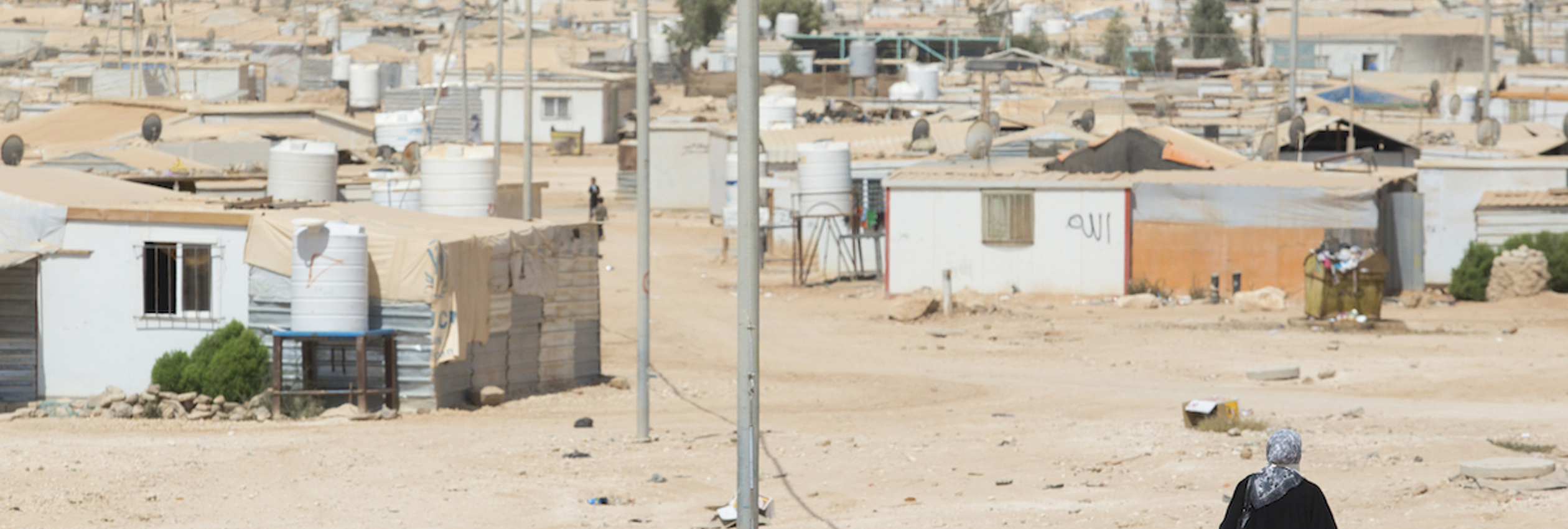
 Jordan
Jordan
